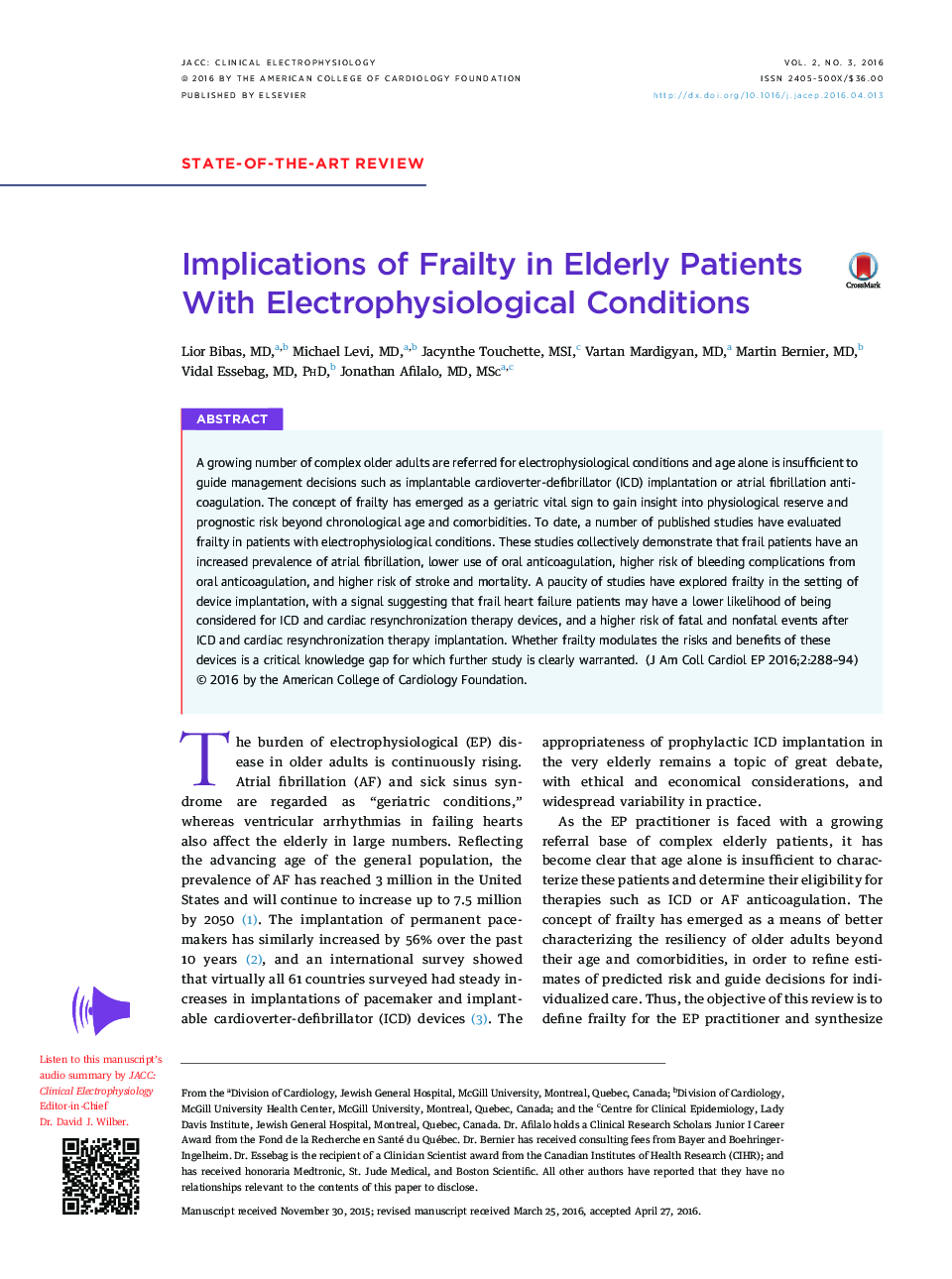| Article ID | Journal | Published Year | Pages | File Type |
|---|---|---|---|---|
| 10165004 | JACC: Clinical Electrophysiology | 2016 | 7 Pages |
Abstract
A growing number of complex older adults are referred for electrophysiological conditions and age alone is insufficient to guide management decisions such as implantable cardioverter-defibrillator (ICD) implantation or atrial fibrillation anticoagulation. The concept of frailty has emerged as a geriatric vital sign to gain insight into physiological reserve and prognostic risk beyond chronological age and comorbidities. To date, a number of published studies have evaluated frailty in patients with electrophysiological conditions. These studies collectively demonstrate that frail patients have an increased prevalence of atrial fibrillation, lower use of oral anticoagulation, higher risk of bleeding complications from oral anticoagulation, and higher risk of stroke and mortality. A paucity of studies have explored frailty in the setting of device implantation, with a signal suggesting that frail heart failure patients may have a lower likelihood of being considered for ICD and cardiac resynchronization therapy devices, and a higher risk of fatal and nonfatal events after ICD and cardiac resynchronization therapy implantation. Whether frailty modulates the risks and benefits of these devices is a critical knowledge gap for which further study is clearly warranted.
Related Topics
Health Sciences
Medicine and Dentistry
Cardiology and Cardiovascular Medicine
Authors
Lior MD, Michael MD, Jacynthe MSI, Vartan MD, Martin MD, Vidal MD, PhD, Jonathan MD, MSc,
